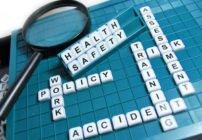Although it has largely been misused in online discourse to mean provoking an emotional reponse, the truth of psychological triggers is much different. It’s a term that is often used in relation to problems like addiction, PTSD, and other behavioral issues. Psychological triggers are known to be a real and serious problem for many, and here are some of the key facts to know about them.
What are they?
Psychological triggers are, essentially, circumstances that “trigger” an emotional response or set of behavior that that individual often has trouble controlling or preventing. A trigger can be an emotion, a situation, a conversation topic, or even the presence of people. For instance, some people with PTSD might be triggered by loud noises, some people with alcohol addictions may be triggered by parties or social situations with people who are drinking socially and encourage them to join in. Trigger warnings are often mean as pre-emptive warnings that someone’s triggers may be about to be exposed.
What causes them?
There are many different causes of triggers, according to https://greatist.com/happiness/emotional-triggers. For instance, one common cause is trauma, including abuse, with childhood trauma often being considered as particularly potent a trigger. Things that remind people of abusive or traumatic situations can trigger extreme emotional responses. This is what is typically known as a post-traumatic stress disorder. Environemntal triggers are a common type, as well. There are also sensory and social triggers, such as seeing certain sights, smelling certain things, or being around certain people can trigger a response, especially if they are connected in any way to past trauma. There are many more types and causes of triggers, however.
Addressing your triggers
As mentioned, trigger warnings are often considered a part of helping people with psychological triggers, but the effectiveness of pure avoidance is widely questioned. Instead, getting professional help to better cope with triggers might be a better idea. For instance, services like https://www.sunshinebehavioralhealth.com/colorado/ may be able to help people who respond to triggers by substance abuse. Therapy can also help people who have been through traumatic situations in helping them live with them more effectively.
Recognizing and acclimating to triggers
If you feel like you have emotional responses that you cannot control as effectively as you would like, then it may be that you have triggers that you have not yet taken the steps to identify. One of the practices that can help you better understand your own triggers is that of mindfulness. Often practiced in meditation, mindfulness is a practice that involves clearing your mind, inhabiting the moment, and getting a sense of mental and emotional distance from problems that you can more objectively look at them. In this way, some people are able to get a better idea of what, exactly, their triggers are since they aren’t as focused on the emotions of the moment once it has passed and they have the opportunity to reach a state of mindfulness.
If you feel like sometimes you respond in ways you cannot control or you want to know what is behind certain behaviors that you want to stop, then looking at your psychological triggers can help.
Related Posts
- Health & Fitness
Food FactsDiet & Nutrition Mind & Body Exercise & Fitness
- Does your family background affect your mental health?
If you want to protect your mental health, it is important to understand the factors…
- Mental Health Misconceptions: What Is The Reality?
It would be unfair, and inaccurate, to say that mental health is not taken seriously…


















